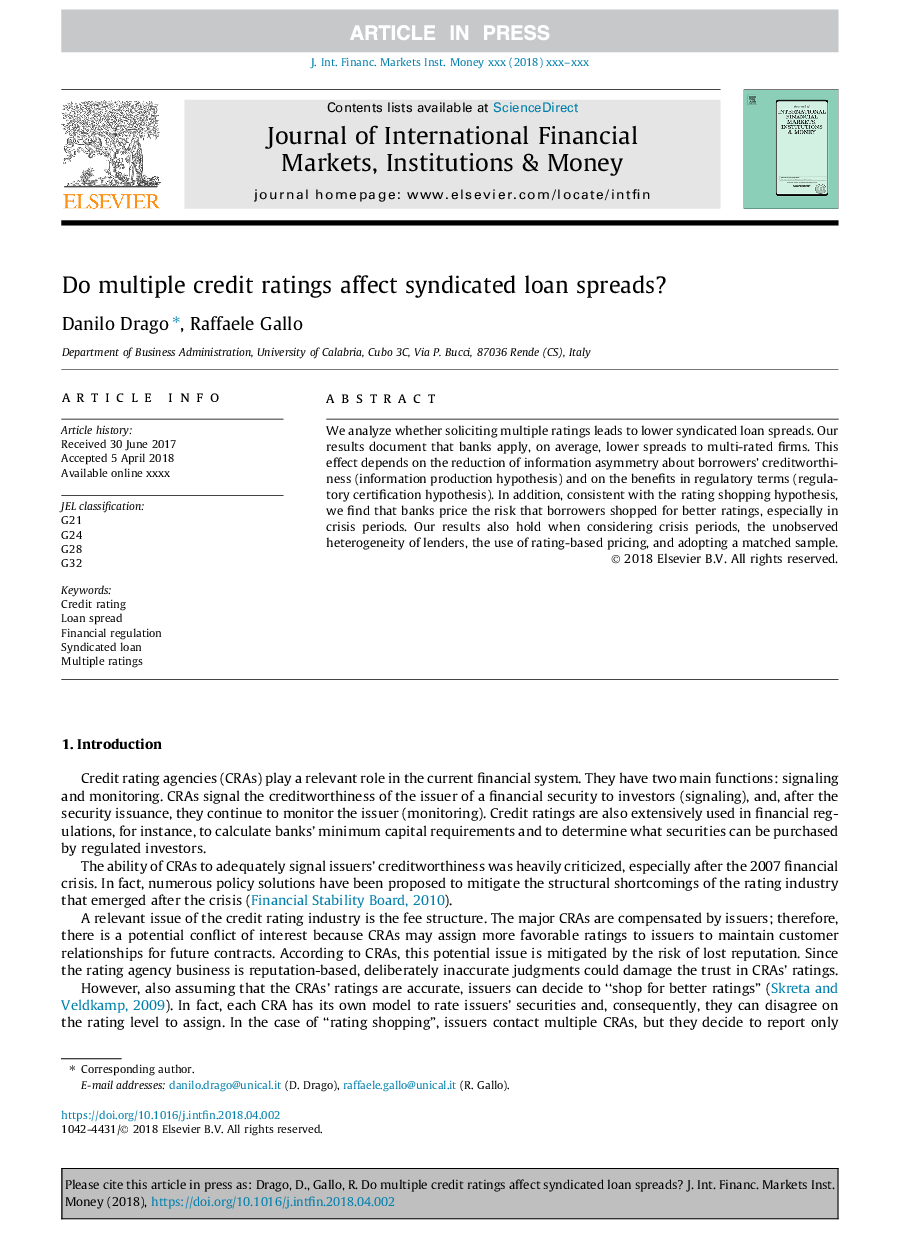| Article ID | Journal | Published Year | Pages | File Type |
|---|---|---|---|---|
| 10153681 | Journal of International Financial Markets, Institutions and Money | 2018 | 16 Pages |
Abstract
We analyze whether soliciting multiple ratings leads to lower syndicated loan spreads. Our results document that banks apply, on average, lower spreads to multi-rated firms. This effect depends on the reduction of information asymmetry about borrowers' creditworthiness (information production hypothesis) and on the benefits in regulatory terms (regulatory certification hypothesis). In addition, consistent with the rating shopping hypothesis, we find that banks price the risk that borrowers shopped for better ratings, especially in crisis periods. Our results also hold when considering crisis periods, the unobserved heterogeneity of lenders, the use of rating-based pricing, and adopting a matched sample.
Related Topics
Social Sciences and Humanities
Economics, Econometrics and Finance
Economics and Econometrics
Authors
Danilo Drago, Raffaele Gallo,
